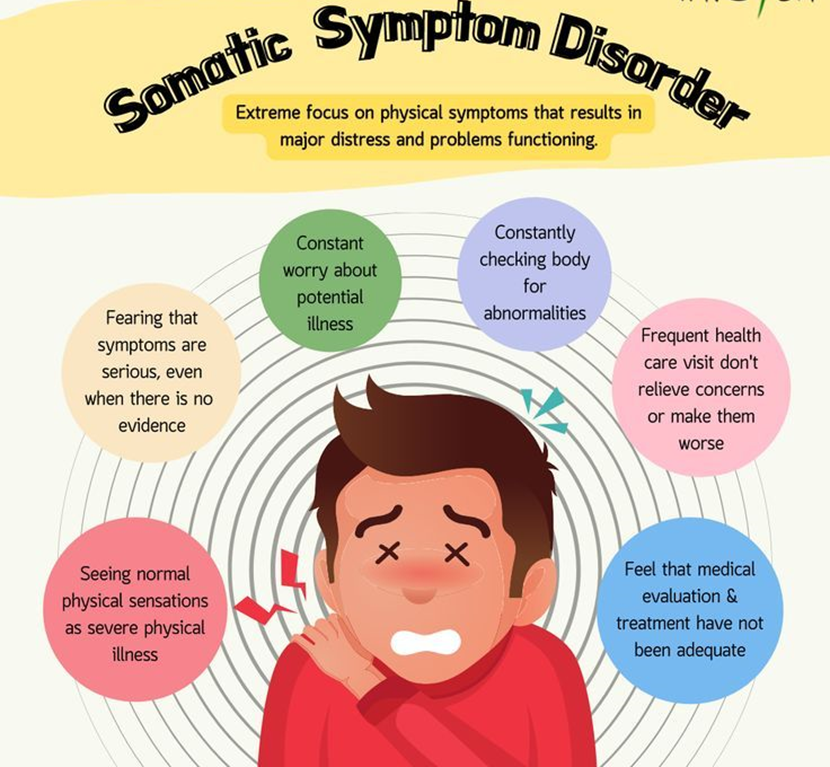The nurse is creating a plan of care for a client with somatic symptom disorder. Which long-term treatment outcomes for this client will be most achievable and measurable? (Select all that apply.)
The client will demonstrate alternative ways to deal with stress, anxiety, and other feelings.
The client will verbally express emotional feelings.
The client will identify the relationship between stress and physical symptoms.
The client will learn to vary their schedule.
The client will assume responsibility for self-care activities.
Correct Answer : A,B,C,E
Choice A reason: Demonstrating alternative ways to deal with stress and anxiety is a measurable outcome, as the client can be observed utilizing different coping strategies in response to stressors.
Choice B reason: The ability to verbally express emotional feelings is an important therapeutic goal for clients with somatic symptom disorder, as it can help them articulate emotions rather than expressing them through physical symptoms.

Choice C reason: Identifying the relationship between stress and physical symptoms is a key component of managing somatic symptom disorder, as it helps the client understand how psychological factors can manifest physically.
Choice D reason: Learning to vary their schedule can help the client avoid routines that may contribute to stress, providing a sense of control and flexibility.
Choice E reason: Assuming responsibility for self-care activities is a significant step towards empowerment and self-management, which is essential for long-term treatment success.
Nursing Test Bank
Naxlex Comprehensive Predictor Exams
Related Questions
Correct Answer is A
Explanation
Choice A reason: Risperidone is an antipsychotic medication commonly used to treat positive symptoms of schizophrenia, such as hallucinations or delusions.
Choice B reason: Haloperidol can be used to treat positive symptoms, but it is not as commonly used as risperidone due to its side effect profile.
Choice C reason: Clonazepam is typically used for anxiety or seizure disorders and is not the primary medication for treating schizophrenia symptoms.
Choice D reason: Clozapine is often reserved for treatment-resistant schizophrenia and is used to treat both positive and negative symptoms, but it is not the first-line treatment due to its potential side effects.
Correct Answer is D
Explanation
Choice A reason: Psychotic behavior is not common in postpartum depression; it is more associated with postpartum psychosis, a rare and severe form of the condition.
Choice B reason: Harming the infant is not a common manifestation of postpartum depression and is a misconception.
Choice C reason: Postpartum depression does not typically begin 48 hours after childbirth; this is more indicative of the "baby blues," which are less severe and more transient.
Choice D reason: Women with a history of depression are at a higher risk for postpartum depression, making this statement accurate.
Whether you are a student looking to ace your exams or a practicing nurse seeking to enhance your expertise , our nursing education contents will empower you with the confidence and competence to make a difference in the lives of patients and become a respected leader in the healthcare field.
Visit Naxlex, invest in your future and unlock endless possibilities with our unparalleled nursing education contents today
Report Wrong Answer on the Current Question
Do you disagree with the answer? If yes, what is your expected answer? Explain.
Kindly be descriptive with the issue you are facing.
